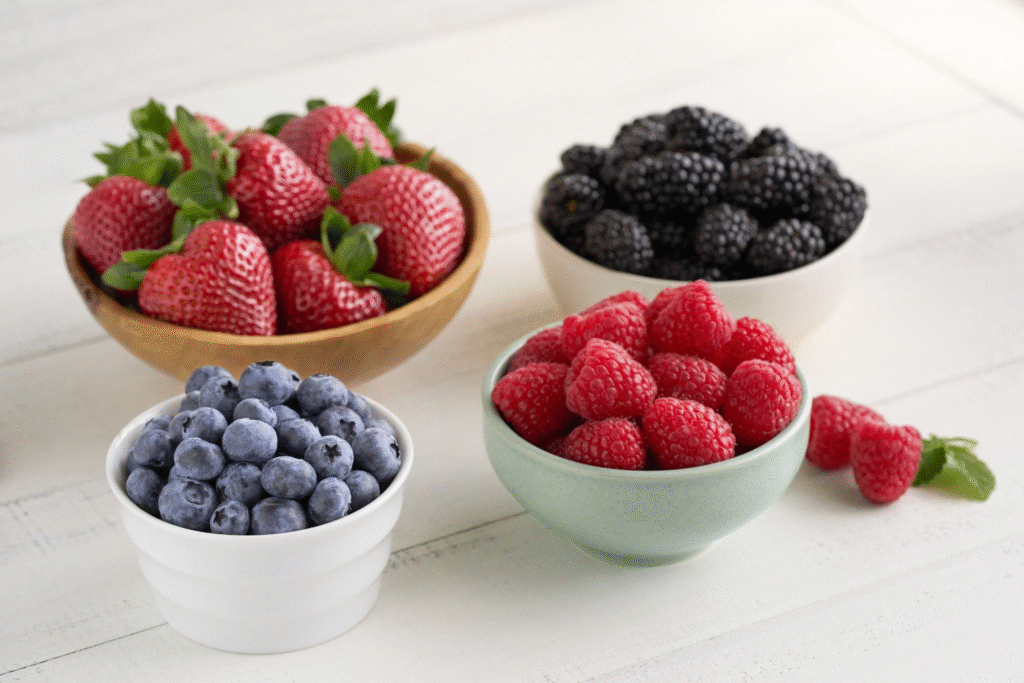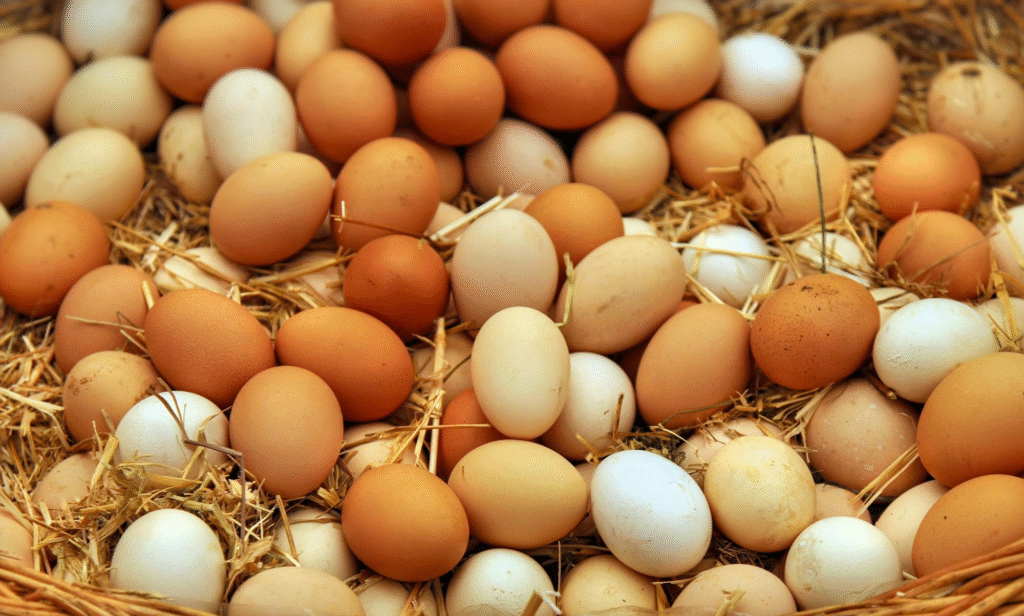Learn how simple food swaps can calm hot flashes and naturally support hormone balance during menopause.

Navigating menopause requires a strategic approach to diet. The right foods can be powerful allies, helping to balance hormones and alleviate symptoms like hot flashes and night sweats. Conversely, the wrong choices can significantly worsen your experience. Here’s a direct guide to optimizing your nutrition during this transition.
10 Foods to Avoid During Menopause
1. Spicy Foods

- Why Avoid: Triggers a rise in body temperature, directly worsening hot flashes and sweating.
- Lifestyle Tip: Opt for herbs like basil, mint, or fennel to add flavor without the heat.
2. Processed Foods

- Why Avoid: High in unhealthy fats, sodium, and sugars exacerbates weight gain, bloating, and inflammation.
- Lifestyle Tip: Prepare simple, whole-food snacks like cut vegetables and hummus in advance to avoid reaching for packaged options.
3. Alcohol

- Why Avoid: A common trigger for hot flashes and night sweats, which disrupt sleep patterns.
- Lifestyle Tip: Try a refreshing mocktail using sparkling water, a splash of 100% cranberry juice, and fresh lime.
4. Caffeine

- Why Avoid: Can intensify hot flashes and contribute to anxiety and sleep disturbances.
- Lifestyle Tip: Switch to decaffeinated herbal teas like chamomile or peppermint in the afternoon and evening.
5. Sugary Treats & Drinks

- Why Avoid: Spikes blood sugar, increasing the risk of weight gain and insulin resistance.
- Lifestyle Tip: Satisfy your sweet tooth with natural sugars from berries or a small square of dark chocolate (70%+ cocoa).
6. Refined Carbohydrates

- Why Avoid: White bread, pasta, and white rice act like sugar in the body, leading to energy crashes and symptom flare-ups.
- Lifestyle Tip: Swap white rice for quinoa or cauliflower rice, and choose whole-grain bread over white.
7. High-Sodium Foods

- Why Avoid: Causes water retention, bloating, and can elevate blood pressure.
- Lifestyle Tip: Season food with garlic, lemon juice, and herbs instead of salt. Always read labels on packaged soups and sauces.
8. Dairy

- Why Avoid: For some, the natural hormones in dairy can disrupt endocrine balance and worsen symptoms.
- Lifestyle Tip: Listen to your body. If you suspect dairy is an issue, try alternatives like almond, oat, or soy milk for a few weeks.
9. Artificial Sweeteners

- Why Avoid: May disrupt gut health and blood sugar regulation, potentially worsening hormonal imbalance.
- Lifestyle Tip: If you need a sweetener, opt for small amounts of natural options like raw honey or pure maple syrup.
10. Fatty Meats

- Why Avoid: High in saturated fats, which can promote weight gain and increase cholesterol levels.
- Lifestyle Tip: Choose lean proteins like chicken breast, turkey, fish, or plant-based options like lentils and tofu.
10 Best Foods for Hormone Balance & Symptom Relief

1. Fatty Fish (Salmon, Mackerel)

- Why It’s Best: Excellent source of anti-inflammatory Omega-3s, proven to reduce the frequency of hot flashes and support mood.
- Lifestyle Tip: Aim for two servings per week. Try baking salmon with lemon and dill for a simple, delicious meal.
2. Leafy Greens (Kale, Spinach)

- Why It’s Best: Packed with calcium for bone health and magnesium to help with sleep and muscle relaxation.
- Lifestyle Tip: Add a large handful of spinach to your morning smoothie for an easy nutrient boost.
3. Soy Products (Tofu, Tempeh, Edamame)

- Why It’s Best: Rich in phytoestrogens, which can help mimic estrogen and ease the severity of symptoms.
- Lifestyle Tip: Snack on steamed edamame, or cube firm tofu and add it to stir-fries and salads.
4. Flaxseeds

- Why It’s Best: A top source of lignans (a type of phytoestrogen) and fiber for hormone and digestive health.
- Lifestyle Tip: Grind flaxseeds for better absorption and sprinkle them on yogurt, oatmeal, or salads.
5. Whole Grains (Oats, Quinoa, Brown Rice)

- Why It’s Best: High fiber content helps stabilize blood sugar, manage weight, and support heart health.
- Lifestyle Tip: Start your day with a bowl of oatmeal topped with nuts and berries for sustained energy.
6. Low-Fat Greek Yogurt

- Why It’s Best: Provides crucial calcium for bone health and protein for muscle maintenance.
- Lifestyle Tip: Use plain Greek yogurt as a base for a parfait with fruit and nuts, or as a savory dip with herbs.
7. Berries (Blueberries, Strawberries)

- Why It’s Best: Loaded with antioxidants and vitamin C to combat inflammation and support skin health.
- Lifestyle Tip: Keep frozen berries on hand for smoothies or to thaw as a topping for yogurt.
8. Nuts (Walnuts, Almonds)

- Why It’s Best: Provide healthy fats, fiber, and vitamin E. Walnuts are especially high in Omega-3s.
- Lifestyle Tip: Practice portion control (a small handful). Keep a mix of unsalted nuts at your desk for a healthy snack.
9. Eggs

- Why It’s Best: An excellent source of choline for brain health and vitamin D for bone support.
- Lifestyle Tip: Hard-boil a batch at the start of the week for a quick, protein-packed snack.
10. Lentils & Legumes

- Why It’s Best: Great plant-based sources of protein and fiber, keeping you full and supporting stable energy levels.
- Lifestyle Tip: Add lentils to soups, stews, and salads. They cook quickly and absorb flavor well.
Lifestyle Tips for Managing Menopause

- Stay Hydrated: Drink plenty of water throughout the day to manage bloating and support metabolism.
- Move Your Body: Incorporate a mix of weight-bearing exercises (walking, yoga) and strength training to protect bones and muscles.
- Prioritize Sleep: Create a cool, dark, and quiet sleeping environment to combat night sweats and insomnia.
- Manage Stress: Practices like meditation, deep breathing, or even daily walks can help regulate cortisol levels.
Final Thoughts
While diet and lifestyle are foundational for managing menopause, hormonal fluctuations can be profound. For many women, targeted support is needed to fully mitigate symptoms and restore balance.
MenoRescue+ is a clinically-formulated supplement designed to work alongside your healthy habits to:
- Reduce the frequency and intensity of hot flashes & night sweats.
- Support natural hormone balance and emotional well-being.
- Promote better sleep and overall vitality.
Ready to feel more like yourself? [Click here below to learn more about MenoRescue+ and take the next step in your wellness journey.]
FAQs: Menopause and Diet
Q1: I’ve heard soy is controversial. Is it safe during menopause?
A: For most women, whole-food soy products (tofu, edamame, tempeh) are safe and beneficial. The phytoestrogens they contain are much weaker than the body’s own estrogen. However, highly processed soy isolates (in some protein bars/powders) should be consumed in moderation.
Q2: How quickly will I notice a difference after changing my diet?
A: It varies, but many women start to notice a reduction in the intensity of symptoms like hot flashes and bloating within 2-4 weeks of consistent dietary changes.
Q3: Do I need to avoid all caffeine and alcohol completely?
A: Not necessarily. It’s about understanding your personal triggers. Try eliminating them for two weeks, then reintroduce one at a time to see how your body reacts. Moderation is key.
Q4: What is the single most important change I can make?
A: Focus on swapping processed foods for whole foods. This single shift reduces sugar, unhealthy fats, and sodium while increasing your intake of fiber, vitamins, and minerals—addressing multiple symptoms at once.

